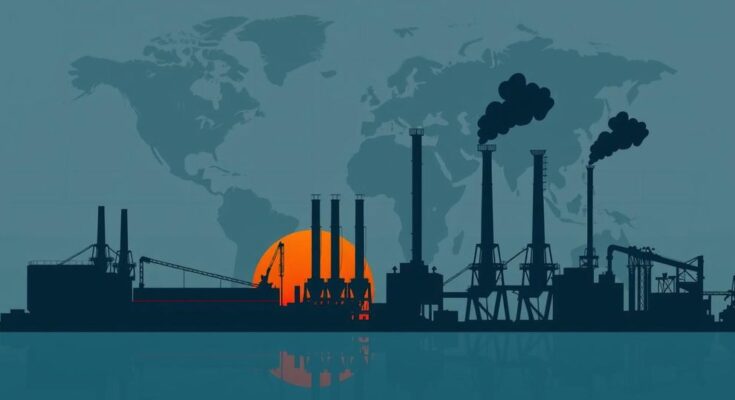The Trump administration may soon compel more companies to halt operations in Venezuela, placing additional pressure on President Nicolas Maduro, following an order for Chevron Corp. This move could significantly affect the Venezuelan economy, heavily reliant on oil, as the administration seeks to negotiate democratic reforms and manage migration issues. The implications of these sanctions could lead to a severe recession in Venezuela, as Chevron and others contribute crucial revenue to the Maduro regime.
The Trump administration is preparing to compel additional companies to stop operations in Venezuela, putting further pressure on President Nicolás Maduro following the order for Chevron Corp. to cease its activities. Reports indicate that the US might revoke operational waivers for companies such as French oil producer Etablissements Maurel & Prom SA, which would require them to cease operations within thirty days. This process could begin as soon as Friday, according to sources familiar with the matter.
The cessation of these companies’ operations would significantly impact Venezuela’s struggling economy and the Maduro administration. Currently, the economy relies heavily on the oil sector, with Chevron and other smaller firms acting as critical contributors to growth amid the decline of the state-owned oil company, Petroleos de Venezuela SA, due to years of neglect and underinvestment. The Treasury Department recently instructed Chevron to conclude operations by April 3 instead of the standard six-month period.
Discussions surrounding US sanctions on Venezuela continue, with varying opinions among Trump administration officials regarding potential outcomes. Notably, companies like Spain’s Repsol SA and Italy’s Eni SpA await news on whether their operational waivers will be revoked as well. Joint ventures between Chevron and Petroleos de Venezuela SA have contributed significantly to the revenues needed to sustain the Maduro regime, suggesting the potential economic fallout without Chevron’s involvement could be substantial, with estimates indicating a possible 7.5 percent contraction in Venezuela’s economy this year.
Despite the mounting pressure, Maduro has attempted to downplay the implications of Chevron’s withdrawal, asserting that oil production will remain intact. A recent visit by Trump adviser Rick Grenell to Maduro has reignited direct communications, leading to the reestablishment of deportation flights for Venezuelan migrants. With 166 Venezuelan migrants returned to Caracas as of February 20, the administration’s strategy appears multifaceted, balancing diplomatic negotiations with economic sanctions.
In summary, the Trump administration’s potential actions to force more companies to cease operations in Venezuela signal significant pressure on the Maduro regime, particularly following Chevron’s mandated withdrawal. Given the dependency of Venezuela’s economy on oil, the impact could be profound. Future developments and the response of other foreign companies could shape Venezuela’s economic landscape in the coming months.
Original Source: www.business-standard.com




